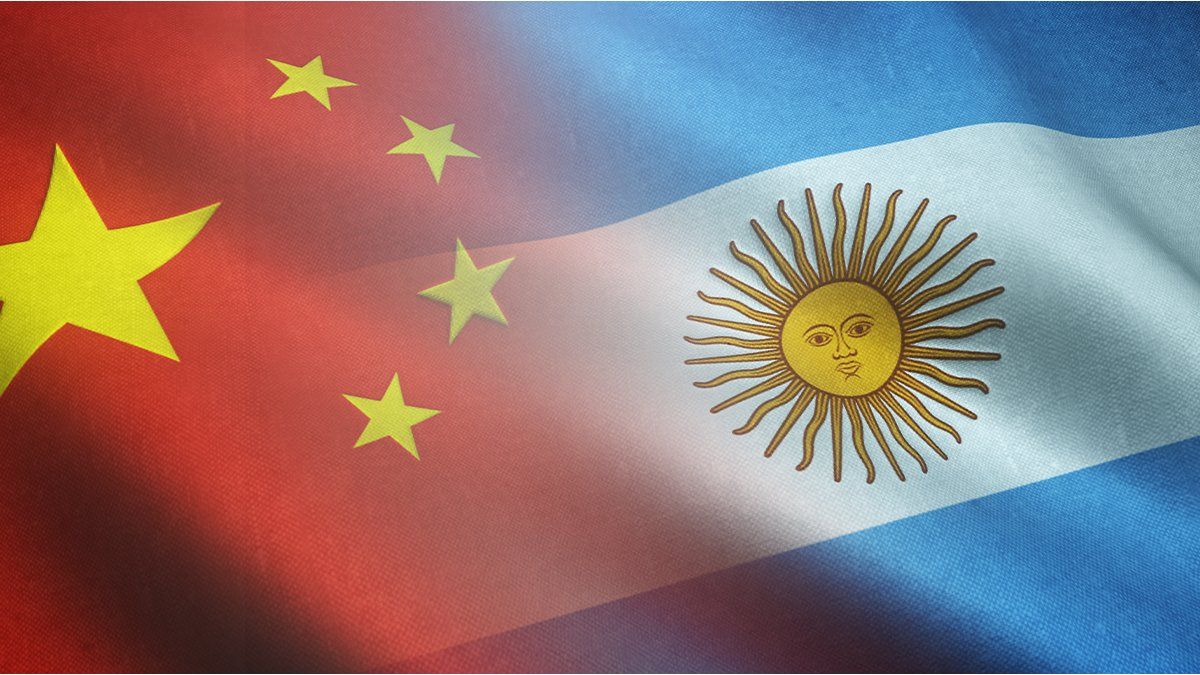Within the framework of the Spring Assembly of the International Monetary Fund (IMF) and the World Bankheld in Washington from April 21 to 26, 2025, the government sought to underpin its financial strategic position. On the one hand, the personal and ideological closeness of the president Javier Milei With the US president Donald Trump has granted the Minister of Economy, Luis Caputo, A political armor that transcends technical negotiations with the background. This support, it seems, would allow the government to make compliance with key goals, such as the accumulation of reservations more flexible from the Central Bank of the Argentine Republic (BCRA) required for June under the extended facilities program, prioritizing an economic agenda aligned with Washington.
The data to be recorded is that, in parallel, The president of the BCRA, Santiago Bausili, held a high -level meeting With authorities of the Popular Bank of China, led by Governor Yi Gang, 65, within the framework of an eventual and future early cancellation of a section of US $ 5,000 million of the Swapconditioned to a United States Treasury loan proposed by the Secretary of the Treasury, Scott Besent. The meeting was confirmed to Scope by a high source of the BCRA.
Dollars for everyone
Besent’s explicit support to the president’s economic program Javier Milei It reflects the influence of the link between Buenos Aires and Washington on international financial decisions.
The last week, and during an meeting with investors in the US capital, Besent stressed that the exchange stabilization fund could provide a credit line to Argentinaprovided that tax, monetary and exchange reforms are maintained. This proposal, which evokes the loan of US $ 20,000 million granted to Mexico in 1995, seeks to strengthen the government’s ability to face external turbulence in a global context marked by protectionist commercial policies. “The relationship between Milei and Trump, based on a shared vision of economic liberalization, has generated a margin of maneuver that reduces the immediate pressure we have of the IMF on goals such as reservesallowing Minister Caputo to negotiate from a position of greater strength, “said a member of the economic team asked for anonymity.
Dollars
Dollars: The scenario for the government.
As stated, the Dialogue between Bausili and the Chinese authoritiesheld during IMF meetings, focused on the swap of coins for US $ 18,000 million, renewed in June 2024, of which US $ 4,900 million were used in 2023 for payments to the IMF, imports and commitments with bondists. The early cancellation of US $ 5,000 million – which the government does not anticipate nearby – responds to a strategy requested by Besent to reduce China’s financial agency and consolidate alignment with the United States, which seeks to counteract Beijing’s influence in Latin America.
During the spring assembly, Besent had an outstanding participation, promoting a reorientation of the IMF and the World Bank towards its fundamental missions of macroeconomic stability. In a speech at the Institute of International Finance, he criticized both institutions for dedicating excessive resources to issues such as climate change and social policies, which, according to him, divert their main approach. Besent also questioned the preferential treatment of China as a development nation, urging the IMF to demand greater transparency in the monetary practices of that country. His interactions with the Argentine economic team reinforced Washington’s support for Argentina’s reforms and their interest in reducing Chinese financial influence in the region.
Ultimately, Besent has underlined the “risks” of maintaining financial agreements with China, warning about indebtedness dynamics observed in other countries, and has urged Argentina to accumulate reservations to settle the swap without renewing it. However, The China Embassy in Argentina described these statements as an interference in bilateral relationsdefending the swap as an essential instrument for the stability of BCRA reserves. From Beijing it was emphasized that cooperation with Argentina is based on mutual benefit.
Maximize the strategy to accumulate dollars and reach the elections
He Argentine government He has adopted a cautious posture. Official sources indicated that a US Treasury loan would only be considered in case of specific currency needs, and They denied that there is an explicit demand to cancel the swap with China. However, a favorable agreement with Washington could facilitate this operation, allowing BCRA to strengthen its reserves and consolidate the exchange scheme of flotation with bands, recently implemented.
In the domestic front, President Javier Milei faces the challenge of sustaining economic stability in a context of inflationary pressures. Although fiscal adjustment policies and monetary restriction have moderated inflation, the government has intensified its measures so that the price of the dollar does not shoot, even within the exchange bands imposed by the IMF.
The accumulation of reserves, a central objective of the BCRA, is conditioned by the need to balance external payments and internal currency demands. The fundamental reading that should be done is that a cancellation of the SWAP section with China, financed by an eventual Treasury loan, could relieve pressure on net reserves, a critical factor for the credibility of the economic plan. However, this movement requires careful political management, since Excessive alignment with Washington could generate tensions with Beijinga key trade partner for Argentine exports, particularly in the agricultural sector.
The international negotiations of April 2025 also reflect Argentina’s effort to diversify their sources of financing. The trust of the IMF, with projections of a 5.5% GDP growth by 2025, and the support of private investors in Washington, indicate a renewed interest in the country’s economic potential. However, the concretion of a treasure loan and the renegotiation of the Chinese swap will depend on the government’s ability to meet the fiscal adjustment goals and accumulation of reserves, in a context of growing geopolitical tensions between the United States and China.
A visit to Kristalina Georgieva, Flores and the promise of maintaining forms
In this framework, the Minister of Economy, Luis Caputohe held a key encounter with the IMF managing director, Kristalina Georgievaduring spring meetings. It was, after the approval of a new program of US $ 20,000 million, which included an initial disbursement of US $ 12,000 million. Georgieva praised Argentina’s advances, highlighting the transition from a fiscal deficit to a surplus and inflation reduction. Caputo, accompanied by Bausili and other officials, stressed the strength of the economic program, even in the face of global volatility, and ratified the commitment to IMF goals, including the accumulation of reserves and fiscal sustainability.
However, in the last hours pressures of the IMF that add complexity to the negotiations have emerged. The agency has urged the government to Accelerate the liberalization of the exchange rate, criticizing the gradual adjustment scheme of the official exchange rate for maintaining an overvalued weight, which discourages exports and limits the accumulation of reserves. This position collides with the BCRA strategy, which has used the official exchange rate as an anchor to contain inflation, although at the cost of sales sales.
These demands of the IMF, combined with the possibility of an American treasure loan, place the government in a crossroads. Caputo has defended the economic strategy, arguing that the country has already exceeded fiscal and monetary goals, which justified a higher initial disbursement of the IMF. However, the pressure to align exchange and fiscal policies with the organism’s recommendations may require politically sensitive adjustments, especially in a context of future volatility in parallel markets.
Source: Ambito




